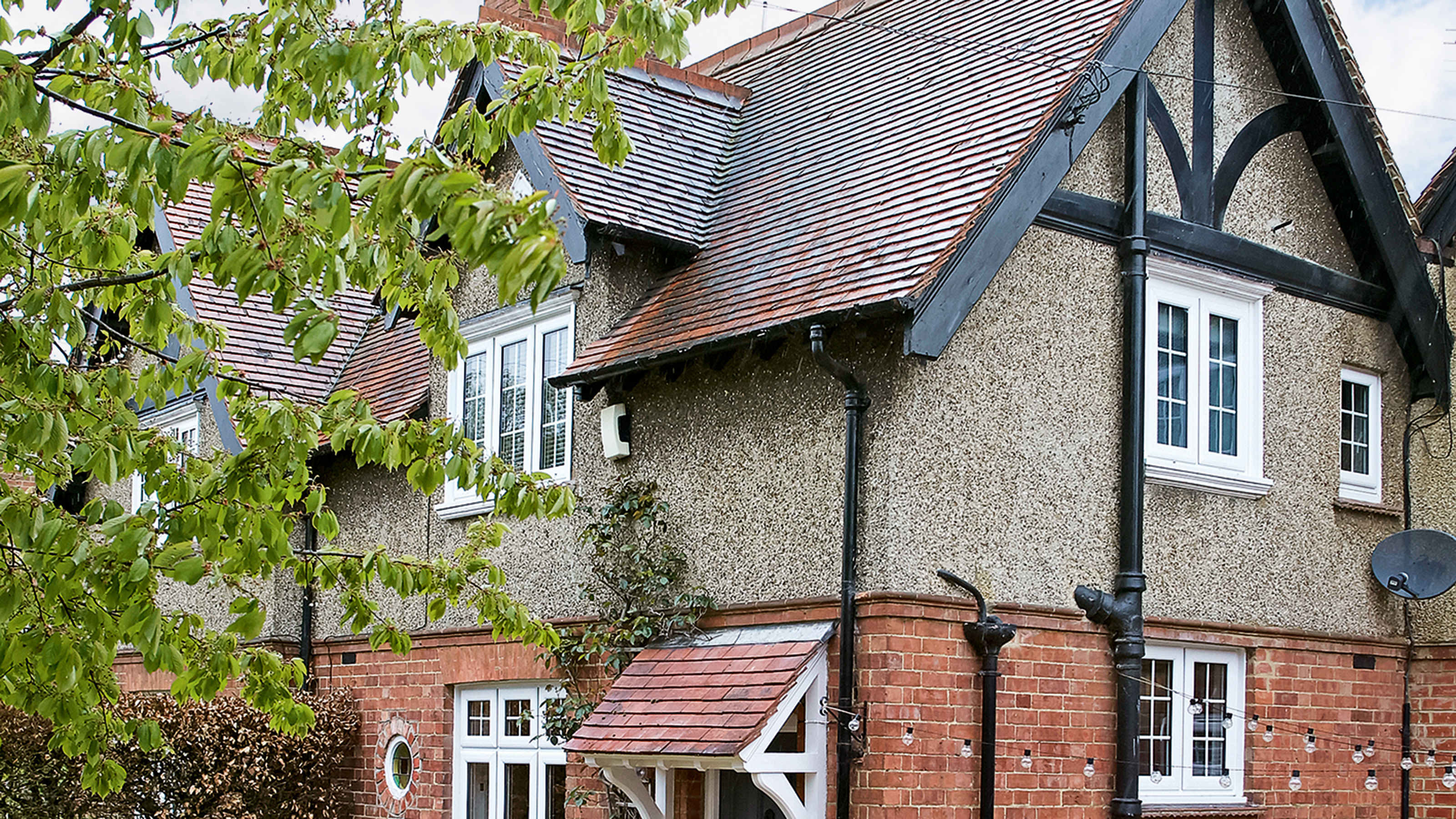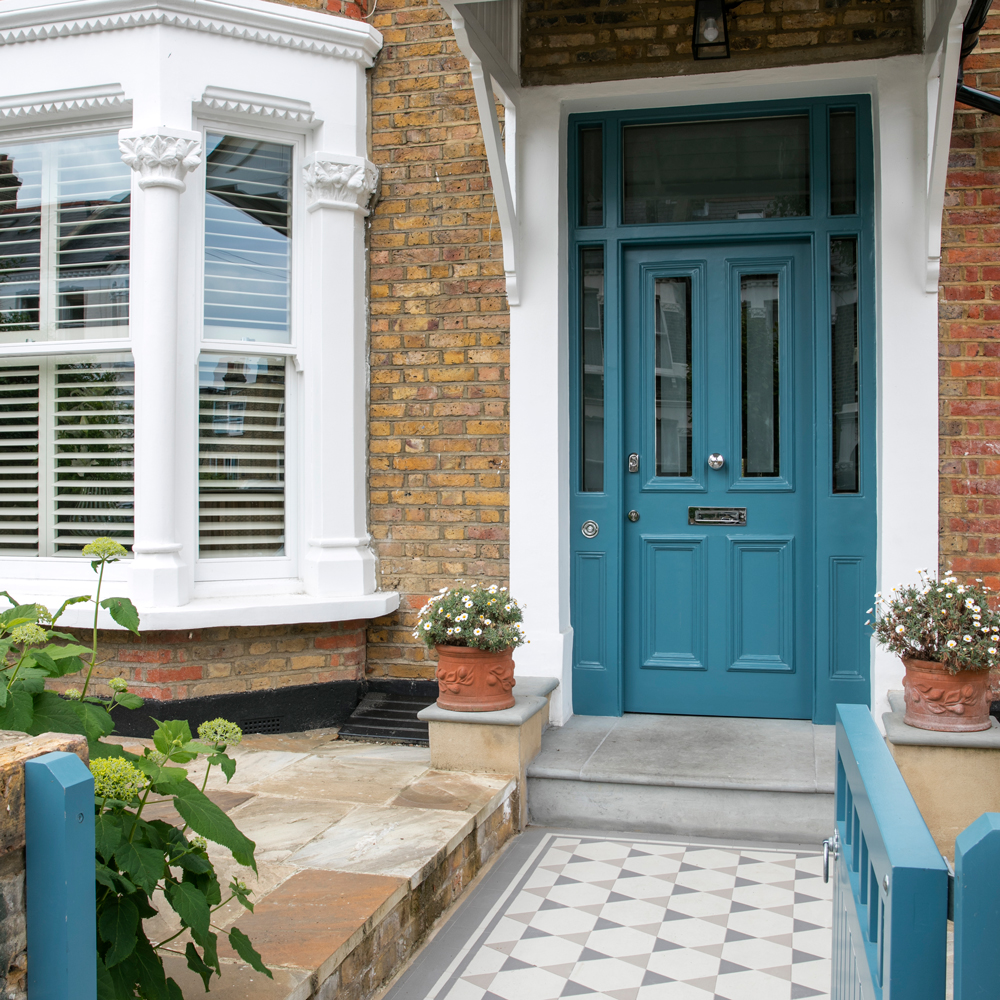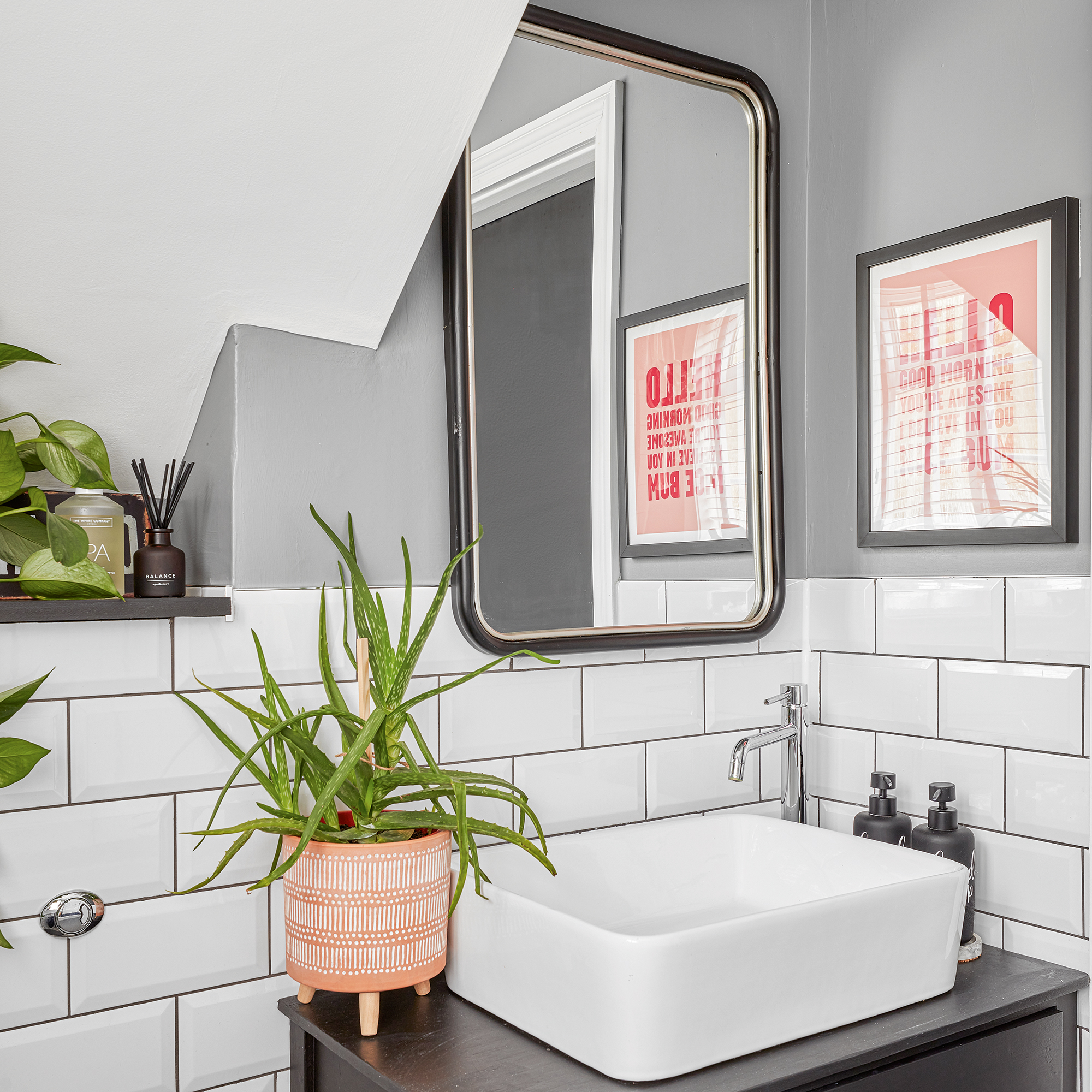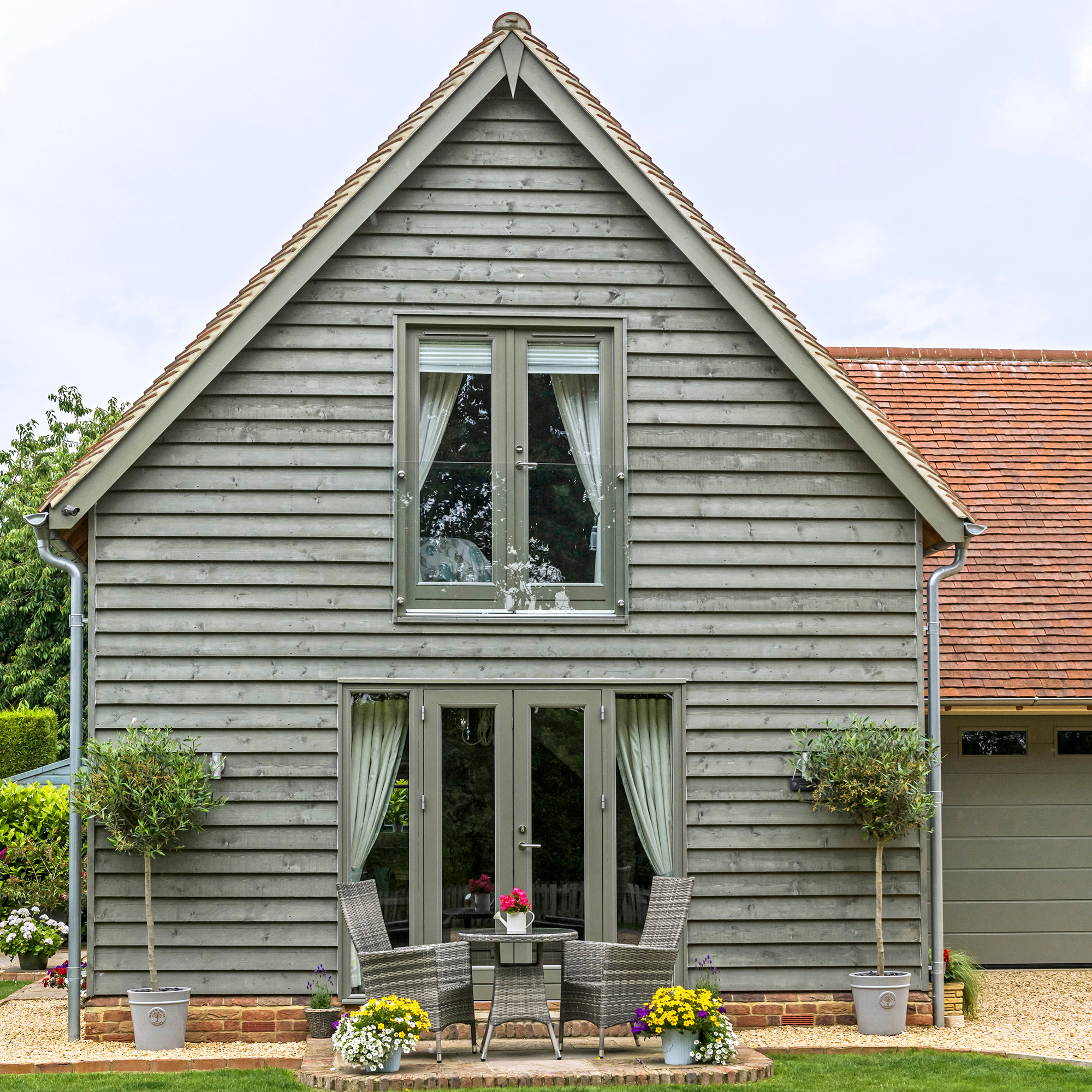What does home insurance cover? Top tips to understand what your policy protects against
It is an essential piece of cover, but do you know what exactly your home insurance covers?

What does home insurance cover? It’s an important question, but one that many of us might struggle to answer, because the cover can seem a little confusing.
Part of that confusion comes down to the fact that home insurance is actually made up of two different types of cover. So what’s the difference? Which cover do you need? And what else will your home insurance policy cover?
What does home insurance cover?
Home insurance is a bit of an umbrella term, for two main categories of cover: buildings insurance and contents insurance. Buildings insurance covers the various elements that make up the structure of the property. That means things like your walls, floors, roof and windows.
Sarah Poulter, communications manager at Aviva, notes that this includes permanent fixtures inside the home like built-in wardrobes, kitchen surfaces, taps, basins, baths and showers. 'Many policies also cover outbuildings, boundary walls, gates, pools, drives and paths as standard,' she adds.
By contrast contents insurance protects the items within the property, your possessions. This can include everything from furniture and furnishings to clothes, TVs and gaming consoles.
'Many insurers will also cover money, valuables, home office equipment and even food in the freezer, usually up to a specified limit,' explains Sarah.

The first thing to bear in mind is that not everybody needs both sorts of home insurance. If you own your property on a leasehold basis, then you usually won’t need buildings insurance ‒ this will instead be the responsibility of the freeholder. You will only need contents insurance. This is also the case if you’re a tenant.
Get the Ideal Home Newsletter
Sign up to our newsletter for style and decor inspiration, house makeovers, project advice and more.
While most policies cover broadly the same items, there will be variances between different policies from different insurers. Some will have higher limits on how much you can claim to replace a single item, for example. As a result, it’s crucial that you read the small print before signing up for a policy so that you understand exactly what’s included in your cover.
Similarly, if there are any queries or concerns about what’s covered in your policy, it’s a good idea to speak to the insurer to clarify the issues.
Does home insurance cover water leaks?

One of the most common reasons people claim on their home insurance ‒ both buildings insurance and contents insurance policies ‒ are for damage caused by the ‘escape of water’. In other words, water leaks.
Generally, your home insurance policy will cover the damage caused by a water leak, as well as “reasonable costs” for removing any part of the internal structure of the property so that they can get to the source of the leak.
In practice, this means that if a plumber needs to remove some tiles from the kitchen in order to get to a leaking pipe and repair it, the costs incurred here will likely be covered by your policy. In addition, the policy may cover the costs of ‘making good’ once the issue has been rectified.
However, exactly how much is covered will vary between different insurers. 'The levels of cover will be outlined in your policy documents so it’s important to read through these and check that you have the right level of cover in place,' explains Ceri McMillan, home insurance expert at GoCompare.
Will home insurance cover plumbing?
A plumbing emergency is not always the same as a water leak. For example, you might find that you have a blocked drain or toilet, or even your boiler has broken down.
Standard home insurance policies may not cover these sorts of issues. Instead, you may have purchased an additional service called ‘home emergency cover’ with your general home insurance policy.
This add-on is often sold as an optional extra for home insurance policies, or even as a standalone product, and will likely provide cover in the event of a plumbing emergency.
Does homeowners insurance cover water damage from rain?
'Home insurance can cover water damage from rain, but it is dependent on how that rain water entered the property,' warns Ryan Fulthorpe, home insurance expert at gocompare.com*. 'If, due to poor upkeep and maintenance of the property rain water is able to damage the property, then Insurers may class this as wear and tear and not cover this incident.'
'However if the rain water has come in through a storm event with wind removing roof tiles leaving the property unprotected this could be an incident covered under your policy.'
Does homeowners insurance cover water damage from rain?

It’s not only burst pipes that can lead to water damage in a property, of course; you could have a situation where rain water enters your home and does some damage. But will your home insurance policy come to the rescue?
Ultimately, it all comes down to how that rain water got into the property. If it came into your home because of a storm ‒ say the wind removed tiles from the roof, and the rain then found its way in ‒ then you may be covered by your home insurance policy.
However, if rain got in because of poor upkeep and maintenance of the property ‒ failing to replace old and damaged roof tiles, for example ‒ then you may find that you are not covered.
Is there a home insurance that covers everything?
There are an awful lot of different insurers out there, all of whom offer their own unique home insurance policies. Exactly what is covered, and the terms and conditions of the policy, will vary between them.
Perhaps the easiest way to find the right policy for you is to make use of a price comparison site. This way you can filter out unsuitable policies and find cover that delivers exactly what you need, as well as getting a really good idea of how much home insurance costs.
'The type of home insurance you need will depend on the type of home you have, and the level of cover you require,' explains Ceri from GoCompare. 'For example, a couple who live in a flat will probably need a different type of insurance to a family of five living in a detached house, so considering your requirements is key to finding the right home insurance policy.
'And as always, with any type of insurance, it’s best to compare quotes for buildings and contents from a number of different providers to find the right cover for your budget, needs, and circumstances.'

However, it’s really important that you don’t focus solely on price, and instead go through the small print on any policy before purchasing. You need to be confident in understanding exactly what is and isn’t included.
'Customers should consider their individual circumstances and choose a policy which reflects their needs, including relevant add-ons,' explains Sarah from Aviva. 'For example, a customer may benefit from ‘accidental damage’ optional cover, particularly if they have children in the home! This will cover damage caused by incidents such as a TV being knocked over or paint being spilled on a carpet.
'Another useful add-on may be for personal belongings, which can cover items away from the home, anywhere in the world.'
Does home insurance cover bad workmanship?
It’s unlikely that damage caused by bad workmanship, be that maintenance, repairs, or renovation will be covered under your buildings and contents insurance. However the contractors should have liability insurance to cover anything that goes wrong.
If it is damage caused by DIY, accidental damage cover may cover the incident but do check with the insurer. If you're having work done on your home then it's important to look into insurance for building works before getting started.
Does house insurance cover garden walls?

The garden falls within the boundaries of your home, and with buildings insurance usually covering the structures within that, your garden wall will likely be included.
However, it’s a good idea to check your policy documents to get a better idea of any possible exclusions. As with all things home and insurance-related, get everything in writing for clarity. Should any claims arise in the future – you’re covered.
Contributions by John Fitzsimons
Tamara was Ideal Home's Digital Editor before joining the Woman & Home team in 2022. She has spent the last 15 years working with the style teams at Country Homes & Interiors and Ideal Home, both now at Future PLC. It’s with these award wining interiors teams that she's honed her skills and passion for shopping, styling and writing. Tamara is always ahead of the curve when it comes to interiors trends – and is great at seeking out designer dupes on the high street.
-
 Will a conservatory add value to your home and how can you maximise it?
Will a conservatory add value to your home and how can you maximise it?This is what the pros say
By Amy Reeves
-
 I’ve been looking for a new signature scent for my home and The White Company's new fragrance is the exact summer holiday smell I needed
I’ve been looking for a new signature scent for my home and The White Company's new fragrance is the exact summer holiday smell I neededSantorini smells fresh, summery and sophisticated
By Kezia Reynolds
-
 How to remove algae from garden walls in five steps – and the cleaning product experts rave about for tackling it fast
How to remove algae from garden walls in five steps – and the cleaning product experts rave about for tackling it fastExperts share their top tips for getting garden walls algae-free
By Katie Sims
-
 You can claim back over £300 a year from HMRC if you work from home - here’s how to check if you’re eligible
You can claim back over £300 a year from HMRC if you work from home - here’s how to check if you’re eligibleWhen it comes to saving, every little helps
By Kezia Reynolds
-
 Experts have revealed the best day to renew your home insurance policy - you’ll want to do it sooner rather than later
Experts have revealed the best day to renew your home insurance policy - you’ll want to do it sooner rather than laterDon't leave this task at the bottom of your to do list
By Kezia Reynolds
-
 Is a variable rate mortgage ever a good idea? Experts weigh in
Is a variable rate mortgage ever a good idea? Experts weigh inOur money expert explains what a variable rate mortgage is, who they can be good for, and the pros and cons of this kind of mortgage
By Samantha Partington
-
 I’m a first-time buyer, what are my chances of getting a mortgage right now?
I’m a first-time buyer, what are my chances of getting a mortgage right now?And what you can do to increase your odds
By Rachel Wait
-
 Should you ever pay above the asking price for a home?
Should you ever pay above the asking price for a home?Our money expert explains whether you should ever pay over the asking price for a home, especially if house prices fall as predicted
By Samantha Partington
-
 Should I fix my mortgage and how long should I fix for?
Should I fix my mortgage and how long should I fix for?We speak to the experts to find out whether you should fix your mortgage and how long for as well as the impact further interest changes could have on your decision
By Samantha Partington
-
 We put your mortgage questions to two leading experts, here's what they said
We put your mortgage questions to two leading experts, here's what they saidAs mortgage panic continues, we've answered the most common questions - from when mortgage rates will come down, to when you actually have to pay stamp duty
By Samantha Partington
-
 'My mortgage is set to skyrocket - what should I do?' 5 potential solutions from a money expert
'My mortgage is set to skyrocket - what should I do?' 5 potential solutions from a money expertIf you're facing higher mortgage costs, our money expert explains various courses of action you could take to ease the pressure
By Samantha Partington